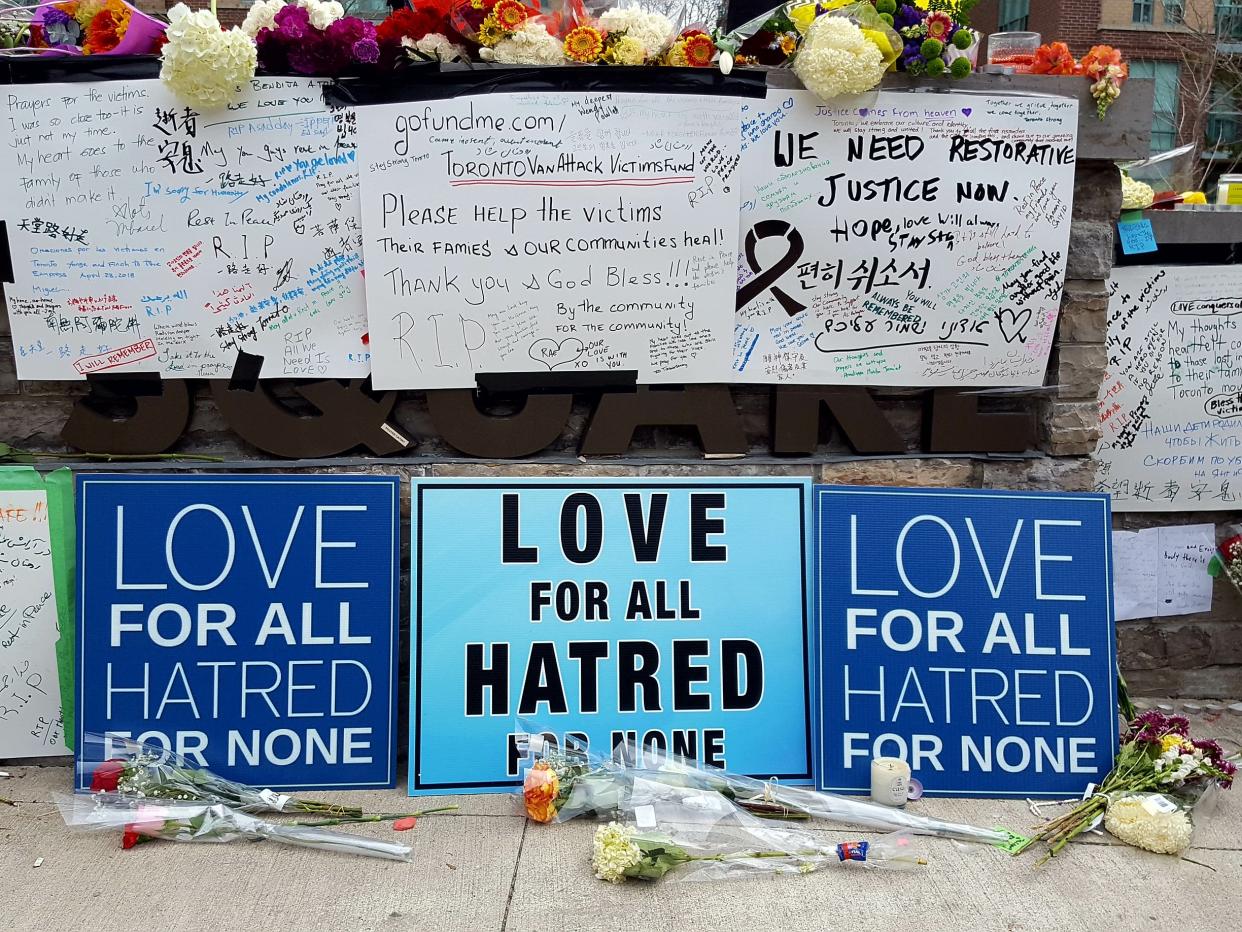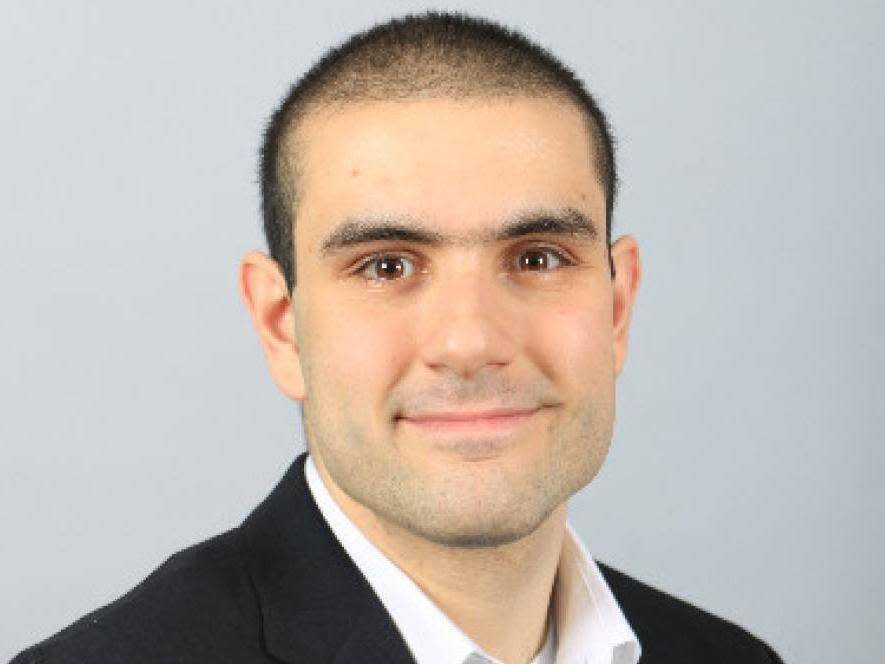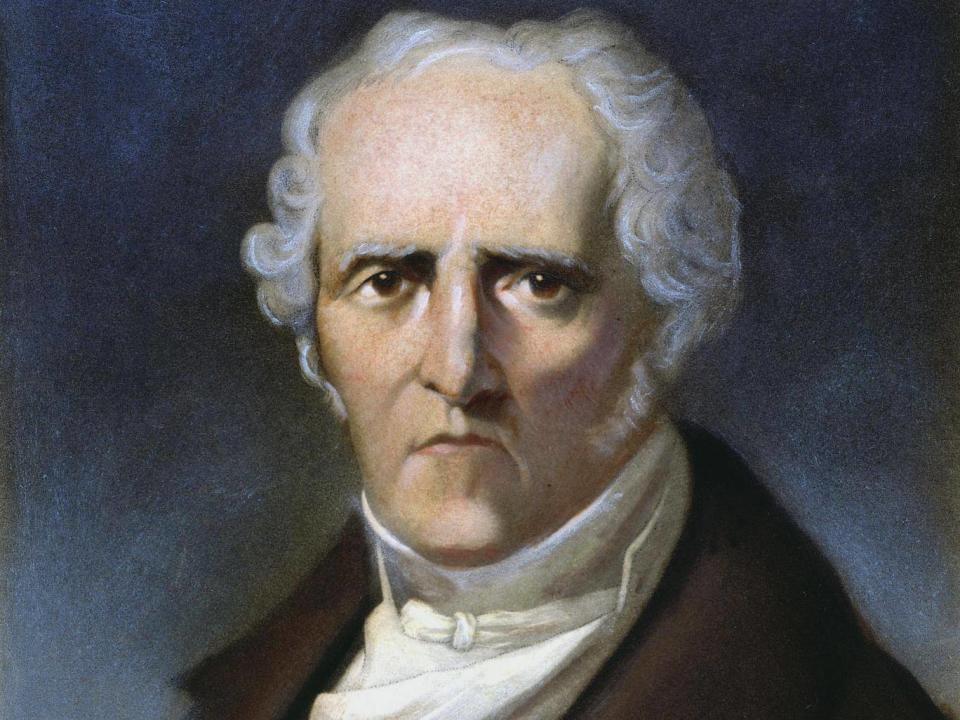The incel rebellion — how involuntary celibates are dangerous in their desires

Unlucky in love. Lonely hearts. Is there anything sadder or more poignant? Or, we now need to add, more terrifying. Losers in the great competition to find a partner, dropouts from the school of seduction, have become organised and weaponised and are fighting back. Losers hate winners, or “Chads” and “Stacys” as they call them. And they now have a new brand name, “incel”, or involuntary celibates.
The massacre-by-hire-car last week in Toronto was carried out by a self-professed incel, Alek Minassian. Ten people were killed, eight of them women. Not so random. A hero cop arrests the guy without firing a shot. The whole of Canada is suffering from a form of PTSD. But another twist in the tale is how minimally this story has been reported or analysed in foreign parts (with a few heroic exceptions), so that the country is feeling not just injured and assaulted and abused, but to some extent insulted to boot.
“What becomes of the broken-hearted?” as Jimmy Ruffin once asked. And the answer is: If we can’t make love let’s make war – otherwise known as the “incel rebellion”. A different kind of frenzy. You only need to glance at their websites to see that incel is now synonymous with violent misogyny and, more broadly, misanthropy.
To be fair, incels.me explicitly disassociates itself from Minassian and rejects illegal activity. But put Minassian together with Elliot Rodger – the incel “martyr” and “supreme gentleman” who killed 6 and injured 14 in Isla Vista in 2014 before killing himself – and still it seems that wallflowers have morphed into a nihilistic death cult.
The use of the vehicle as a lethal weapon is characteristic of contemporary terrorist networks. Some are calling for Minassian to be prosecuted for gender-based terrorism. Violence against women is a form of terror. Incel has manifestly borrowed its tactics from jihadist groups like Isis.
But the underlying reality is that the incel template, of angry young men “depraved on account of they’re deprived” (as Stephen Sondheim has it in West Side Story) provides the raw material of terror groups well beyond any ideological differences.

Sexual deficit (and the notion of making up for lost time) is the fuel that powers these juggernauts. As Christopher Hitchens neatly put it, the problem for jihadists – and we can add incels – is “not so much that they desire virgins as that they are virgins.” (Elliot Rodger for one complained that he was a virgin at the age of 22).
Ironically the “incel” term was dreamed up by a woman who only wanted to provide consolation to lonely lost souls, but it has now been comprehensively colonised by rogue guys in search of revenge and annihilation. So at one level “inceldom” is nothing but lonely losers on the rampage.
Many of the elements of this movement are distinctively modern (the use of online forums, for example), but the problem is an ancient one. At least in a time of peace, since in a time of war there was a natural outlet for all that aggression. Or perhaps that form of undirected aggression led to war.
But the question of what to do about it was first systematically addressed by Charles Fourier, a French philosopher of the period immediately after the French Revolution labelled a “utopian socialist” by Marx and Engels.
Fourier believed that human beings were driven by 12 (or possibly 13) fundamental “passions”. All the defects of civilisation were the result of these passions being frustrated or repressed. So the simple answer was to make sure to satisfy them. Thus ushering in the age of “harmony”.
Sexual inequality is rife in society, Fourier realised. The point of the “Phalanstery”, the ideal community of the future, was to achieve both a “social minimum” and a “sexual minimum”, a baseline provision. He saw that frustration would lead to violence. Mainly but not exclusively among men. Fourier was not only a great feminist but actually invented the word “feminism”. He gives the specific example of a woman who became a sadist because, he hypothesises, she was a lesbian who was unable to fulfil her desires.

The problem of unfulfilled desires was a universal one and his reconstructed society was designed to eradicate frustration and boredom. With this in view, he envisaged organised mass adultery and a sexual AA emergency call-out service for really desperate cases, provided by highly virtuous altruists.
Problem solved, theoretically at least. And it may be that some part of Fourier’s vision has already been achieved, at least in terms of prostitution and easily accessible pornography. Surely, it will be said, most carnal desires can be satisfied, at least temporarily. But Freud turned the whole utopian argument on its head in his theory of “sublimation”. In Civilisation and its Discontents he argues that the unrequited passion that does not find a natural outlet and is diverted into other channels lies at the very heart of civilisation itself.
Why do we even have towns and cities and bridges and tunnels and art and literature? Answer, says Freud, because they are powered up by all that primal libido that has nowhere else to go. Our contemporary obsession with being happy is therefore completely beside the point. Perhaps the American constitution’s aspiration to the “pursuit of happiness” is more relevant, because the “pursuit” suggests a goal that is never properly attained and goalposts that are forever being moved backwards.
Seen in this way, the incel movement starts to look like the price we have to pay, the dark side of progress. But why has it taken on such an extreme, dramatic, and above all violent form? Has something changed in the fundamentals of sexual exchange? The answer, I think, is that the bare necessities remain unaltered, the physics of attraction is now what it always was, but the metaphysics has been twisted and heightened. Another way of putting this, in more economic terms, is that supply has remained more or less constant, but demand has gone through the roof.
We are living in an age of sexual capitalism. We need a Thomas Piketty of carnal knowledge to analyse the intricacies and logic of sexual inequality. But the broad outlines were already laid down in the theory of historical materialism. Because the underlying reality of sex is that it is not an experience but a commodity. We do not speak (alas) of “doing” sex (much less “feeling”), we speak of “having” it. Even French speaks of “possessing” and “possession”.
And as soon as it is possible to have it, it is also possible to not have it. And the divide between the “haves” and the “have-nots” is historically determined to get greater. More and more sex will be concentrated in the hands of fewer and fewer people, leaving a potential army of the sexually destitute. A whole proletariat of lonely losers, hunting for crumbs from the table.

When I was observing the behaviour of the southern right whale a few years ago off the coast of Australia, I was struck by the legend that the male whale becomes sexually mature a year or more before the female whale. Thus automatically producing a large section of the juvenile male population who, for a period, are venting their fury on squid and other sea creatures. The tragedy of human evolution is that, unlike most mammals who are seasonal in terms of sexual availability, we have a permanent on-switch. At least potentially.
We can have sex any time of the day or night, in any month of the year. In theory. But the bare fact is that, physiologically speaking, we cannot have sex all the time. Nor, emotionally, do we want to. But that makes for a lot of misunderstanding. The default position is that everyone is out-of-sync. Moderately blissful brief encounters, the “joy of sex” (as per the classic manual), should be considered a rare, almost miraculous anomaly, more unicorn than norm.
The contemporary context in which the incel movement has arisen marks a convergence between the inflation of desire and the scarcity of satisfaction. Resources are, as ever, unevenly distributed. But through the media and the rise of the virtual, fantasy has skyrocketed. Mere data – modern Kinsey reports – can’t really address the problem, which is essentially subjective and symbolic in nature. Satisfaction is always and ever will be elusive. But the expectation of satisfaction is now out of control. There is more sex than ever, so it seems, but also less.
Perceiving or believing that others are in possession of this mysterious good that slips through our fingers, that there is an immense orgy going on to which we were not invited, we are haunted by a spectre of sexuality. And as Leonard Cohen pointed out, we are at the same time, “oppressed by the figures of beauty”, so that we are apt to feel, like the inmates of incel, ugly and unwanted outsiders (“There is no gym for the face” laments one).
But there is a more political and international perspective to take into account as well. Can there be such a thing as an incel among nations? In the case of Toronto, a case of alleged sexual deficit – followed by mass killing – has been compounded by a level of media deficit, under-reporting abroad.

It is not as if Canada is any kind of pariah nation, but perhaps it tends to go discreetly under the radar while its next-door neighbour, ably embodied by its current president, loudly asserts its conquests and adds on flashing neon lights, just in case you missed anything. Perhaps Canada, in Freudian terms, is sublimating, suggesting that, in the great North American continent, you have two options: mate or sublimate.
As for Brexit Britain, you could argue that in withdrawing from our “union” with Europe, we are now entering either a grey period of self-imposed monasticism or – in the wildly over-optimistic perspective of the party that really deserves the name party – gearing up for renewed promiscuity on a global scale. Goodbye Europe, hello Kama Sutra. The theory of “Harmony” may yet make a comeback.
The unintentional celibate used to be part of that paradoxical category of people who do not belong to any category. The lonely ones, the outsiders, the friendless, the lovelorn. Practically invisible, undetectable. Suddenly, with incel, they have a brand, a calling card, a sense of allegiance. Almost a cause. At least a diagnosis.
Perhaps real sex is dead or dying. At the very least it’s endangered. And we are killing it. Toronto was an attack on sex itself. I would hazard a general law: the internet (online forums, social media, and Facebook in particular) makes everything worse. Involuntary celibacy is only one manifestation of our voluntary enslavement to the reign of the virtual.
Andy Martin is the author of Reacher Said Nothing: Lee Child and the Making of Make Me. He teaches at the University of Cambridge.

 Yahoo News
Yahoo News 
